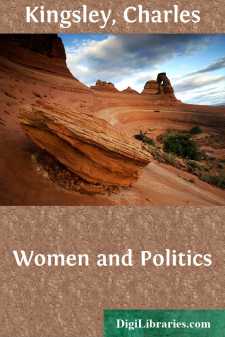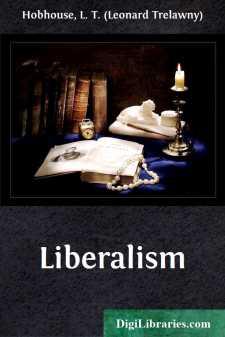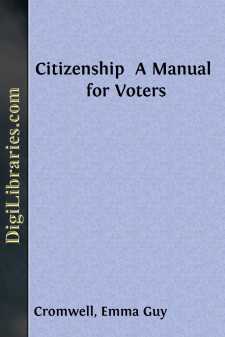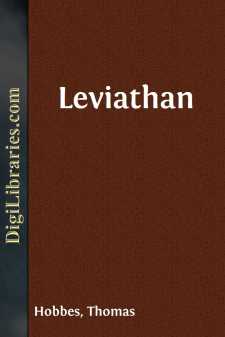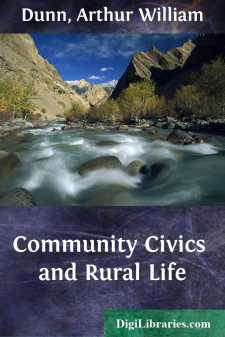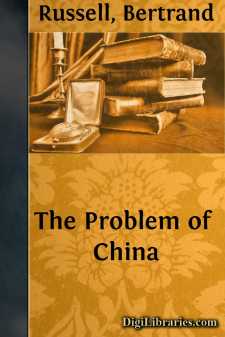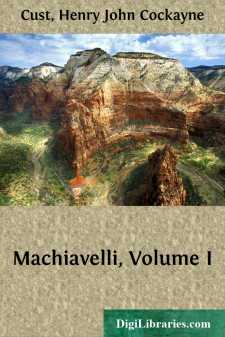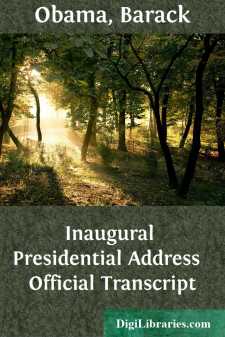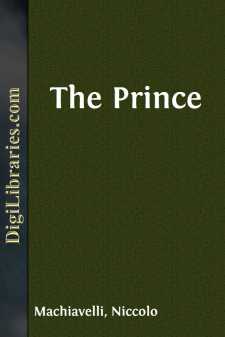Political Science
Political Science Books
Sort by:
by:
Charles Kingsley
WOMEN AND POLITICS. Somewhat more than 300 years ago, John Knox, who did more than any man to mould the thoughts of his nation—and indeed of our English Puritans likewise—was writing a little book on the ‘Regiment of Women,’ in which he proved woman, on account of her natural inferiority to man, unfit to rule. And but the other day, Mr. John Stuart Mill, who has done more than any man to mould...
more...
BEFORE LIBERALISM The modern State is the distinctive product of a unique civilization. But it is a product which is still in the making, and a part of the process is a struggle between new and old principles of social order. To understand the new, which is our main purpose, we must first cast a glance at the old. We must understand what the social structure was, which—mainly, as I shall show, under...
more...
Introduction Realizing the need of a manual on citizenship for the new voters in Kentucky, the author has endeavored to compile such information on the government and its workings, as will be of use to all voters, especially the ones just entering political life. A strong appeal is made to the women voters of our nation to prepare themselves for public life by keeping in touch with the issues of the...
more...
by:
Thomas Hobbes
CHAPTER I. OF SENSE Concerning the Thoughts of man, I will consider them first Singly, and afterwards in Trayne, or dependance upon one another. Singly, they are every one a Representation or Apparence, of some quality, or other Accident of a body without us; which is commonly called an Object. Which Object worketh on the Eyes, Eares, and other parts of mans body; and by diversity of working, produceth...
more...
This book, like the author's earlier one, The Community and the Citizen, is a "community civics" text. Two purposes led to the preparation of this second volume. The first was to produce a text that would meet the needs of pupils and teachers who live outside of the environment of the large city. Training for citizenship in a democracy is a fundamentally identical process in all...
more...
by:
Bertrand Russell
CHAPTER I QUESTIONS A European lately arrived in China, if he is of a receptive and reflective disposition, finds himself confronted with a number of very puzzling questions, for many of which the problems of Western Europe will not have prepared him. Russian problems, it is true, have important affinities with those of China, but they have also important differences; moreover they are decidedly less...
more...
INTRODUCTION The Life of a Day. ' am at my farm; and, since my last misfortunes, have not been in Florence twenty days. I spent September in snaring thrushes; but at the end of the month, even this rather tiresome sport failed me. I rise with the sun, and go into a wood of mine that is being cut, where I remain two hours inspecting the work of the previous day and conversing with the woodcutters,...
more...
by:
Barack Obama
: My fellow citizens: I stand here today humbled by the task before us, grateful for the trust you have bestowed, mindful of the sacrifices borne by our ancestors. I thank President Bush for his service to our nation, as well as the generosity and cooperation he has shown throughout this transition. Forty-four Americans have now taken the presidential oath. The words have been spoken during rising...
more...
by:
Benjamin Jowett
INTRODUCTION AND ANALYSIS. The genuineness of the Laws is sufficiently proved (1) by more than twenty citations of them in the writings of Aristotle, who was residing at Athens during the last twenty years of the life of Plato, and who, having left it after his death (B.C. 347), returned thither twelve years later (B.C. 335); (2) by the allusion of Isocrates (Oratio ad Philippum missa, p.84: To men...
more...
CHAPTER I — HOW MANY KINDS OF PRINCIPALITIES THERE ARE, AND BY WHAT MEANS THEY ARE ACQUIRED All states, all powers, that have held and hold rule over men have been and are either republics or principalities. Principalities are either hereditary, in which the family has been long established; or they are new. The new are either entirely new, as was Milan to Francesco Sforza, or they are, as it were,...
more...


